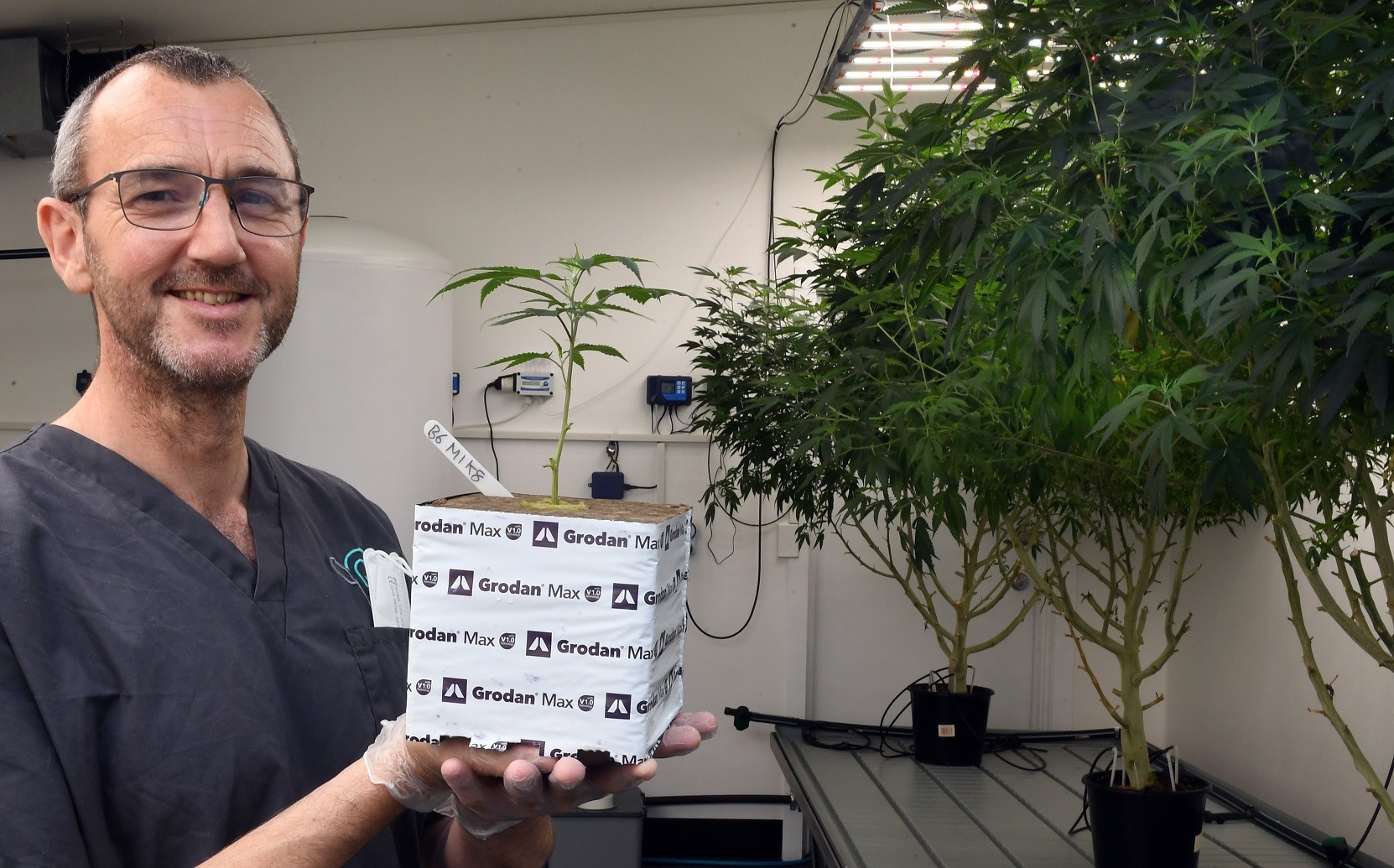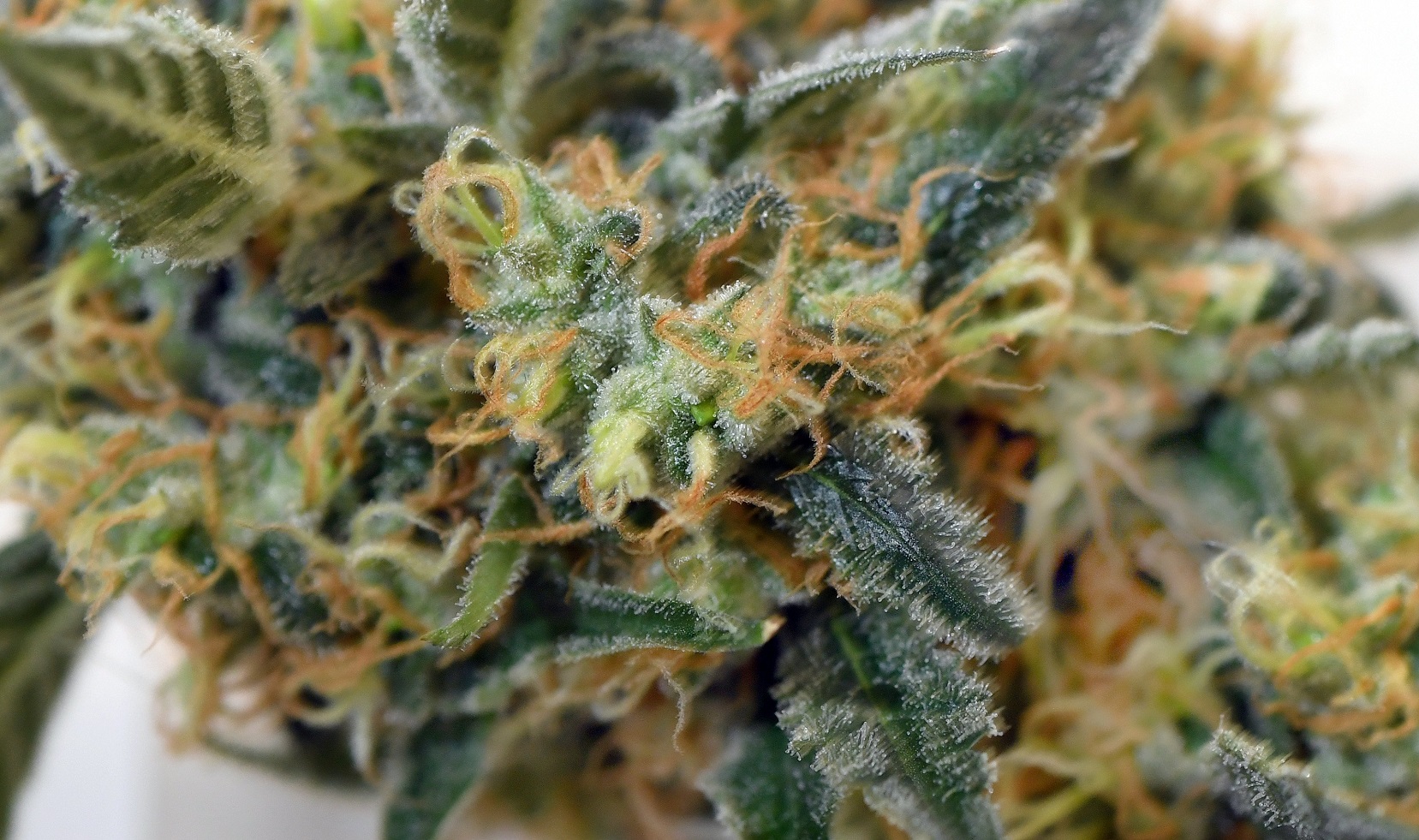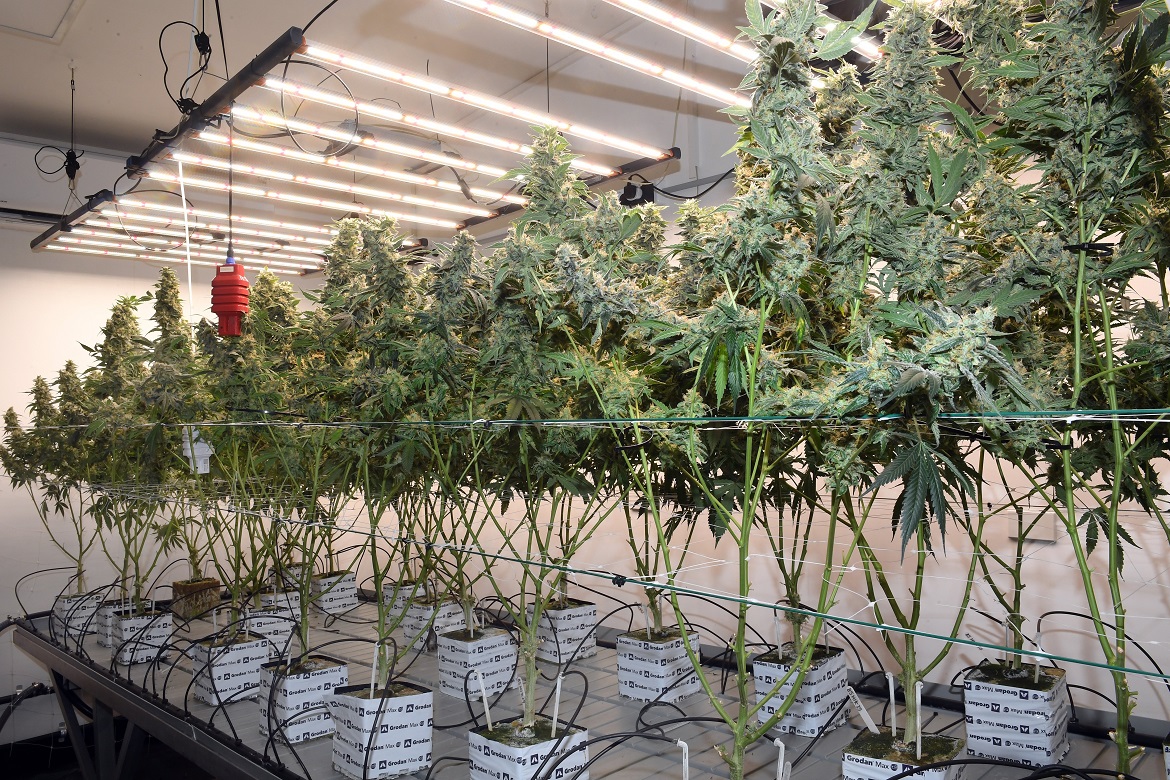You could say he’s living the high life, yet Mike Breeze reckons he has never worked harder for less.
Mr Breeze has not spent a night away from his home, near Milton, in three years. That came from starting a business, in an industry that did not exist, during a global pandemic.
For the past four years, in a peaceful location amid green rolling South Otago farmland, Mr Breeze has spent his days consumed by cannabis in what has been a "hell of a journey".
Pure Isolation, which he co-founded, was one of the first New Zealand-based companies to be fully licensed for the cultivation and sale of medicinal cannabis. But the path to an approved medicine was long and revenue was a "distant dream" — potentially still about 18 months away — let alone profit.
Pure Isolation is a story of the inimitable Kiwi number 8 wire ingenuity, involving an expatriate Brit who arrived in New Zealand 20 years ago "with a backpack and a sense of adventure", a farm implement shed and the passionate pursuit of a perceived opportunity.

Arriving from the United Kingdom, he loved New Zealand "from day one" and sought residency within three months. He lived in Auckland for five years and spent a few years in the Pacific, based out of Papua New Guinea.
Returning to New Zealand a few years ago, he ended up in Dunedin and then South Otago, where the original plan was to grow peonies commercially on the lifestyle property.
But then talk began about New Zealand’s Medicinal Cannabis Scheme, which was eventually ratified in 2020. Both Mr Breeze and his UK-based brother John — who has a background in hydroponics — had experience in the legal cannabis market, and another director was brought in whom he worked with in PNG.
Several years were spent working with the Ministry of Health, during what he described as a very open, constructive process; MedSafe — the medical regulatory body run by the ministry — consulted broadly.
Pure Isolation was one of the first 10 to be licensed in New Zealand, which was an "incredibly exciting" moment and the result of a lot of hard work, he said.

The licence cost around $15,000, which was "incredibly cheap" compared to competing schemes in the UK, where it could cost $1 million to get into the industry, but it also coincided with Covid-19.
"What a time to start a business. In an industry that doesn’t exist, regulated by someone who has to respond to a pandemic," Mr Breeze said.
As part of the business plan, regular visits were scheduled by John Breeze, but that had not been able to happen yet.
Mr Breeze works out of a 150sq m proof of concept facility which was built in a farm implement shed, previously open-sided with a dirt floor, it was closed off and the floor concreted before cultivation began.
That aspect of the story was something that he loved — saying there were not many countries in the world where such an approach could be facilitated — and he relished using the connection with the property’s previous history.

Back in 2020, there were only certain companies globally that could supply seed to New Zealand with the necessary phytosanitary certification.
Looking to source "the very best genetics in the world", Pure Isolation imported 100 seeds from an established supplier in Amsterdam.
While there would be some land-based strains in New Zealand and strains developed on the black market that could have unique medical benefits, the Pure Isolation team were cultivators, not geneticists or botanists, and not in a position to explore any of those strains.
For them, it was about sourcing "super stable genetics" from world-class breeders, and most of their research had been about process.
"It’s easy to grow cannabis. Anyone can grow average cannabis, but this is a pharmaceutical input and it’s a different beast. I have to grow cannabis exactly the same, time and time again," he said.

The plants were under super intense LED lights and were watered 15 times a day through a drip irrigation system, while a NASA-certified air scrubber exchanged all the air in the facility several times an hour.
The local Bruce water scheme provided quality water; some facilities had to treat their water before use, but their local water was "so good".
There were waste management procedures to follow and no active waste left the facility, he said.
Cash was raised from family and friends to refit the facility about 15 months ago and the company was preparing to raise money again, seeking institutional investment, to build a 1500sq m facility over the next 18 months, with capacity for up to 4000kg a year of medicinal-grade dried flower cannabis.
Being the founder of a startup business could be incredibly isolated and Mr Breeze was grateful for being introduced to Startup Dunedin, where people on a similar journey were able to share their stories.

Typical of a business founder, he was "everything" in the business, quipping that effectively his job was cleaner and record keeper.
"Cannabis is second to that."
Mr Breeze was recently elected to the board of the New Zealand Medicinal Cannabis Council which featured representatives from New Zealand cannabis companies.
It was a strong body for a young industry and, while ostensibly competing against each other, they were "in a room collaborating", talking about issues and making submissions to change regulations, as there were always "teething troubles" with regulations. There was also "amazing" access to regulators, he said.
It would be an industry heavily supported by exports — the market was not big enough to support it purely from domestic sales — and various international models were being looked at to tackle global markets.

Cannabis was a plant that dated back 7000 years; it had a very recent 50-100 year history of prohibition and now the spotlight was back on it. It was an opportunity to go from the black market into a pharmaceutical and to be part of the exploration and potential medical benefits that had been "locked away", he said.
He believed the potential of the industry in New Zealand was "‘huge". The country as a whole had a strong brand, it was all about "clean green" and it was also a very trusted country. So there were lots of reasons that it was a good place to create a pharmaceutical manufacturing business.
Describing he and his brother as life-time cannabis enthusiasts, with no criminal history, Mr Breeze said the scheme came along at the right time for them.
"It’s been a hell of a journey. It’s been a really, really exciting journey. What an opportunity."









